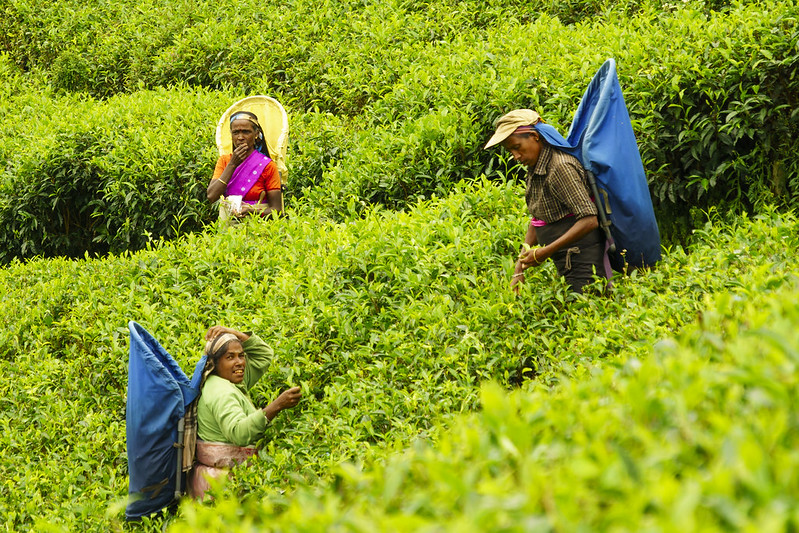The agriculture sector plays a crucial role in the economy of Sri Lanka, employing a significant portion of the population and contributing to the country’s GDP. However, despite its importance, the sector faces several challenges that hinder its growth and potential. This critical analysis will delve into some of these challenges and propose potential solutions for a more sustainable and prosperous agriculture sector in Sri Lanka.
- Lack of Technological Advancement: One of the major setbacks in the agriculture sector of Sri Lanka is the limited adoption of modern technologies. Outdated farming practices, inadequate access to irrigation systems, and low usage of mechanization contribute to low productivity levels. The absence of technological advancements hampers efficiency, reduces yields, and limits the sector’s ability to compete globally.
- Fragmented Land Ownership: Another significant challenge is the fragmented land ownership pattern prevalent in Sri Lanka’s agriculture sector. Small-scale farmers own most of the agricultural land, leading to suboptimal land use practices and difficulties in implementing large-scale agricultural projects. The lack of consolidation makes it challenging to introduce modern farming techniques, hindering productivity and profitability.
- Climate Change Vulnerability: Sri Lanka is highly vulnerable to climate change impacts, including erratic rainfall patterns, droughts, floods, and rising temperatures. These climate-related challenges pose a severe threat to agricultural production and food security. The agriculture sector must adapt by implementing climate-resilient practices, such as crop diversification, water management strategies, and improved irrigation systems.
- Limited Access to Finance and Market Opportunities: Access to finance is a significant constraint for small-scale farmers in Sri Lanka. Limited access to credit prevents them from investing in modern farming technologies, improving infrastructure, or expanding their operations. Additionally, inadequate market opportunities and lack of market information further restrict farmers’ ability to sell their produce at fair prices.
- Inadequate Research and Development: Insufficient investment in agricultural research and development is another critical issue. The sector lacks the necessary support for innovation, technology transfer, and knowledge dissemination. Strengthening research institutions, promoting public-private partnerships, and encouraging collaboration between academia and farmers can drive innovation and enhance productivity.
To overcome the challenges faced by the agriculture sector in Sri Lanka, a comprehensive approach is needed. This includes investing in modern technologies, promoting consolidation of land holdings, implementing climate-resilient practices, improving access to finance and market opportunities, and prioritizing research and development. By addressing these issues, Sri Lanka can unlock the full potential of its agriculture sector, ensuring sustainable growth, food security, and economic prosperity for its people.
Key Agricultural Products in Sri Lanka
Sri Lanka is known for its diverse range of agricultural products. Here are some key agricultural products in Sri Lanka:
- Rice: Rice is the staple food in Sri Lanka, and it is a significant agricultural product. Both paddy cultivation (rice in the husk) and rice milling contribute to the country’s food security.
- Tea: Sri Lanka is renowned for its high-quality tea, known as Ceylon tea. The tea industry plays a crucial role in the country’s economy, with tea plantations spread across the central highlands.
- Rubber: Rubber cultivation is another important agricultural product in Sri Lanka. The country has a long history of rubber production, and rubber plantations are primarily located in the lowland areas.
- Coconut: Sri Lanka is one of the leading coconut-producing countries globally. Coconut cultivation is widespread, and it provides various products such as coconut oil, coconut milk, and desiccated coconut.
- Spices: Sri Lanka is famous for its spices, including cinnamon, pepper, cardamom, cloves, and nutmeg. These spices are cultivated in different regions of the country and are exported worldwide.
- Fruits and Vegetables: Sri Lanka produces a wide variety of fruits and vegetables, including mangoes, bananas, pineapples, papayas, jackfruit, tomatoes, onions, and leafy greens. These products cater to both domestic consumption and export markets.
- Fisheries: Sri Lanka has a thriving fisheries industry due to its coastal location. Fish and seafood products such as tuna, prawns, crabs, and lobsters are important agricultural commodities.
- Sugarcane: Sugarcane cultivation is present in certain regions of Sri Lanka, primarily for sugar production and other by-products like molasses.
What are the best plantation companies for investment
In Sri Lanka, several plantation sector companies have established themselves as leaders in their respective industries. Here are some of the best plantation sector companies in Sri Lanka:
- Ceylon Tea Services PLC: Ceylon Tea Services PLC is a renowned company in the tea industry, known for producing high-quality Ceylon tea. They have a strong focus on sustainable farming practices and ethical sourcing, ensuring the production of premium teas that are sought after worldwide.
- Hayleys Plantations: Hayleys Plantations is a diversified plantation company with interests in tea, rubber, oil palm, and other crops. They have a significant presence in the plantation sector and are known for their commitment to sustainability and social responsibility.
- Kelani Valley Plantations PLC: Kelani Valley Plantations PLC is primarily engaged in the cultivation and processing of tea, rubber, and oil palm. They have a long-standing history in the plantation sector and are recognized for their dedication to quality and innovation.
- Watawala Plantations PLC: Watawala Plantations PLC is involved in tea, rubber, and palm oil cultivation. They are known for their sustainable practices, including organic tea production, and have a strong focus on environmental conservation.
- Maskeliya Plantations PLC: Maskeliya Plantations PLC specializes in tea cultivation and is well-regarded for its premium tea brands. They have a commitment to maintaining high-quality standards throughout their operations.
It’s important to note that this list is not exhaustive, and there are other notable plantation sector companies in Sri Lanka as well. When considering investment or partnership opportunities, it’s recommended to conduct thorough research and analysis based on specific criteria and objectives.

